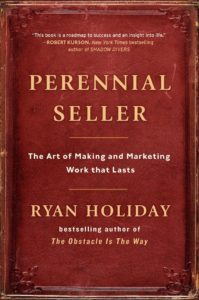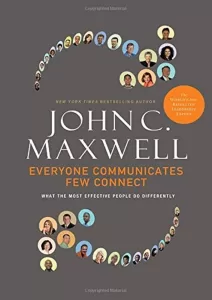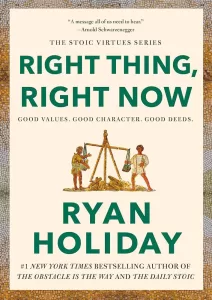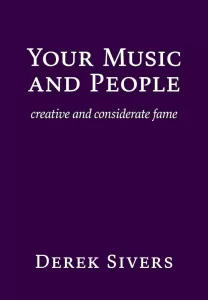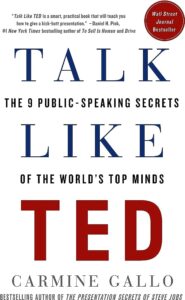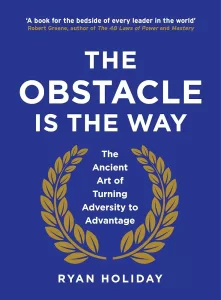Book Review: “Perennial Seller”
Book: Perennial Seller by Ryan Holiday
Reviewer: Bobby Powers
My Thoughts: 9 of 10
In this book, Holiday has blended the perfect cocktail of motivation plus harsh reality. He shares stories of success and failure, tips for creating work that is meaningful and enduring, and pragmatic advice on how to market whatever you've created. I've read this book twice and plan to re-read it again in the coming years. I learned most from Holiday's advice on creating a platform and finding your true fans. Perennial Seller is a practical resource for every author, musician, and creative professional.
Selected Quotes and Ideas from the Book
Perennial Sellers
- “In every industry—from books to movies to restaurants to plays and software—certain creations can be described as ‘perennial.’ By that I mean that, regardless of how well they may have done at their release or the scale of audience they have reached, these products have found continued success and more customers over time. They are the kind of art or products that we return to more than once, that we recommend to others, even if they’re no longer trendy or brand new. In this way, they are timeless, dependable resources and unsung moneymakers, paying like annuities to their owners.”
- “Perennial sellers—big or small—not only refuse to die or fade into oblivion; they grow stronger with each passing day. The works of Homer and Shakespeare, along with hundreds of other dead playwrights and philosophers—despite all being available for free online—still sell hundreds of thousands of copies per year.”
- The Lindy Effect: “Every day something lasts, the chances that it will continue to last increase.”
- “If a book has been in print for forty years, I can expect it to be in print for another forty years. But, and that is the main difference, if it survives another decade, then it will be expected to be in print another fifty years...Every year that passes without extinction doubles the additional life expectancy.” -Nassim Nicholas Taleb
- “Longevity isn’t an accident.”
The Creative Process
- “The better your product, the better your marketing will be. The worse it is, the more time you will have to spend marketing and the less effective every minute of that marketing will be. You can count on that.”
- “The first step of any creator hoping for lasting success—whether for ten years or ten centuries—is to accept that hope has nothing to do with it. To be great, one must make great work, and making great work is incredibly hard. It must be our primary focus.”
- “People [who are] thinking about things other than making the best product never make the best product.” -Phil Libin
- “Ideas are cheap...The difference between a great work and an idea for a great work is all the sweat, time, effort, and agony that go into engaging that idea and turning it into something real. That difference is not trivial. If great work were easy to produce, a lot more people would do it.”
- “In my work with authors, I’ve met with no shortage of smart, accomplished people who, I’ve realized, don’t actually want to write a book despite what they say. They want to have a book.”
- “Lots of people want to be the noun (writer, entrepreneur, etc.) without doing the verb (writing, inventing, etc.).” -Austin Kleon
- “I can’t say I know too many people whose success was built by spending one fifth of their time creating and four fifths loudly hawking the work they’ve just thrown together.”
- “If there is any magic in creative expression, it’s how small, even silly ideas can become big, important, awe-inspiring works if a person invests enough time in them. How within seemingly ordinary people there can exist depths of wisdom, beauty, and insight—and that if they put in the work to plumb those deep depths, they might reap incredible rewards.”
- “You don’t have to be a genius to make genius—you just have to have small moments of brilliance and edit out the boring stuff.”
- “Getting into action generates inspiration. Don’t cop out waiting for inspiration to get you back into action. It won’t!” -Robert Evans
- “People want things that are really passionate. Often the best version is not for everybody. The best art divides the audience. If you put out a record and half the people who hear it absolutely love it and half the people who hear it absolutely hate it, you’ve done well. Because it is pushing that boundary.” -Rick Rubin
Positioning/Packaging/Pitching
- “Positioning is what your project is and who it is for. Packaging is what it looks like and what it’s called. The Pitch is the sell—how the project is described and what it offers to the audience. Each is essential. Each feeds into the others.”
- “Audiences can’t magically know what is inside something they haven’t seen. They have no clue that it will change their lives...Someone is going to have to tell them. It has to be obvious!”
- “Remember: When people tell you something’s wrong or doesn’t work for them, they are almost always right. When they tell you exactly what they think is wrong and how to fix it, they are almost always wrong.” -Neil Gaiman
- “You must be able to explicitly say who you are building your thing for. You must know what you are aiming for--you’ll miss otherwise. You need to know this so you can make the decisions that go into properly positioning the project for them. You need to know this so you can edit and refine the work until it’s so utterly awesome that your target group cannot resist buying it.”
- “How you present yourself has an enormous influence over whether you will be chosen or ignored. It’s how you teach people that you are better. It’s how you separate yourself from the others. It’s the face and the name tag you put on your work. The differences between doing it well and doing it poorly are enormous. The same article with a slightly different headline can have a tenfold spread in readership. One stands out; the other doesn’t. That saying ‘You can’t judge a book by its cover’? It’s total nonsense. Of course you can judge a book by its cover—that’s why books have covers. They’re designed to catch people’s attention and draw them toward the work—and away from all the other works that stand equal on the shelf. When it comes to attracting an audience, the creators who take the time to get their positioning and packaging right—who don’t just go with their first instinct and hope—are the ones who will win.”
- “If your goal is to create a perennial seller, you can’t measure yourself against people who aren’t aiming for the same thing—you can’t be endlessly checking industry charts or lists, and you can’t be distracted by the trends and fancies of other creators who are hopelessly lost...Only crazy people would compare themselves to people on totally different tracks.”
Marketing
- “Marketing is anything that gets or keeps customers.”
- “Customers will not come just because you build it. You have to make that happen and it’s harder than it looks.” -Peter Thiel
- “The idea that you won’t have to work to sell your product is more than entitled.”
- “We are fighting not just against our contemporaries for recognition, but against centuries of great art for an audience. Each new work competes for customers with everything that came before it and everything that will come after.”
- “It’s on you to take this great thing you’ve made and reach as many people as possible with it. What comes next is applying the same amount of creativity and energy into marketing as you put into making...Marketing is an opportunity for you to distinguish yourself, to beat out the other talented folks whose entitlement or laziness holds them back.”
- “There is no silver bullet...No, we’re going to have to use a lot of lead bullets.” -Ben Horowitz
- Concentrate all of your efforts around a launch date. “You’re doing a lot of work in advance so that to the public it feels like you’re suddenly everywhere.”
- “A smart business friend once described the art of marketing to me as a matter of ‘finding your addicts.’”
Platform
- “In my definition, a platform is the combination of the tools, relationships, access, and audience that you have to bear on spreading your creative work--not just once, but over the course of a career.”
- “A creator, such as an artist, musician, photographer, craftsperson, performer, animator, designer, video maker, or author—in other words, anyone producing works of art—needs to acquire only 1,000 True Fans to make a living.” -Kevin Kelly
- “With one thousand true fans—people ‘who will purchase anything and everything you produce’—you’re more or less guaranteed a livable income provided that you continue to produce consistently great work.”
- “Platform is not a stepping stone. It is the finish line.” -Casey Neistat
- “The best marketing you can do for your book is to start writing the next one...More great work is the best way to market yourself.”
- “To do our work without a platform is to be at the mercy of other people’s permission. Someone else must fund us, someone else must give us the green light, someone else must choose to let us make our work. To a creative person, that is death.”
Think you’d like this book?
Other books you may enjoy:
- So Good They Can't Ignore You by Cal Newport
- The Hard Thing About Hard Things by Ben Horowitz
- Enemies of Promise by Cyril Connolly
Other notable books by the author:
- Ego Is the Enemy
- Stillness Is the Key
- Growth Hacker Marketing
- The Obstacle Is the Way
Want to become a stronger leader?
Sign up to get my exclusive
10-page guide for leaders and learners.
